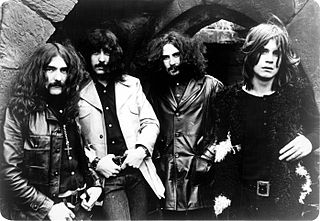
Black Sabbath were an English rock band formed in Birmingham in 1968 by guitarist Tony Iommi, drummer Bill Ward, bassist Geezer Butler and vocalist Ozzy Osbourne. They are often cited as pioneers of heavy metal music. The band helped define the genre with releases such as Black Sabbath (1970), Paranoid (1970), and Master of Reality (1971). The band had multiple line-up changes following Osbourne's departure in 1979, with Iommi being the only constant member throughout its history.

Paranoid is the second studio album by English heavy metal band Black Sabbath, released in September 1970 through Vertigo Records in England and Warner Bros. Records in the US. The album contains several of the band's signature songs, including "Iron Man", "War Pigs" and the title track, which was the band's only Top 20 hit, reaching number 4 in the UK charts.

Master of Reality is the third studio album by English heavy metal band Black Sabbath, released on 21 July 1971 by Vertigo Records. It is regarded by some critics as the foundation of doom metal, stoner rock, and sludge metal. It peaked at number five on the UK Albums Chart and number eight on the US Billboard 200. Negatively received by critics on release, the album is now considered one of the greatest heavy metal albums of all time. It was certified double platinum after having sold over two million copies.
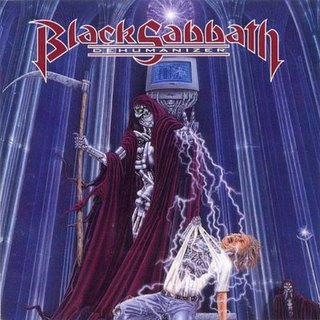
Dehumanizer is the sixteenth studio album by English rock band Black Sabbath, released on June 22, 1992.

Terence Michael Joseph "Geezer" Butler is a British musician and songwriter. He is best known as the bassist and primary lyricist of the heavy metal band Black Sabbath. He has also recorded and performed with Heaven & Hell, GZR, and Ozzy Osbourne. Butler is currently the bassist of Deadland Ritual.
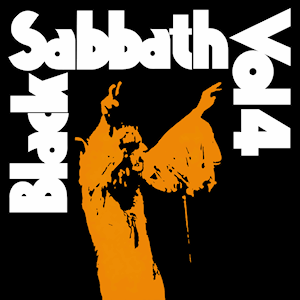
Vol. 4 is the fourth studio album by English rock band Black Sabbath, released in September 1972. It was the first album by Black Sabbath not produced by Rodger Bain; guitarist Tony Iommi assumed production duties. Patrick Meehan, the band's then-manager, was listed as co-producer, though his actual involvement in the album's production was minimal.
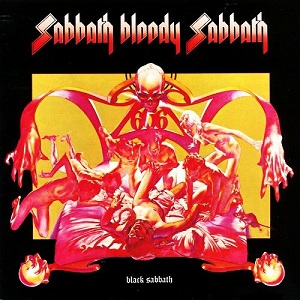
Sabbath Bloody Sabbath is the fifth studio album by English rock band Black Sabbath, released in December 1973. It was produced by the band and recorded at Morgan Studios in London in September 1973.

Born Again is the eleventh studio album by English heavy metal band Black Sabbath. Released in August 1983, it is the only album the group recorded with lead vocalist Ian Gillan, best known for his work with Deep Purple. It was also the last Black Sabbath album for nine years to feature original bassist Geezer Butler and the last to feature original drummer Bill Ward, though Ward did record a studio track with the band fifteen years later on their 1998 live album Reunion. The album has received mixed reviews from critics, but was a commercial success upon its 1983 release, reaching No. 4 in the UK charts. The album also hit the top 40 in the United States. In July 2021, guitarist and founding member Tony Iommi confirmed that the long lost original master tapes of the album had been finally located, and that he was considering remixing the album for a future re-release.

Mob Rules is the tenth studio album by English heavy metal band Black Sabbath, released in November 1981. It followed 1980's Heaven and Hell, it was the second album to feature lead singer Ronnie James Dio and the first with drummer Vinny Appice. Neither musician would appear on a Black Sabbath studio album again until the 1992 album Dehumanizer.

Technical Ecstasy is the seventh studio album by English heavy metal band Black Sabbath, produced by guitarist Tony Iommi and released on 25 September 1976 by Vertigo Records. The album received mixed reviews from critics but was a commercial success, peaking at number 13 on the UK Albums Chart and number 51 on the US Billboard 200 Album chart, later being certified Gold by the RIAA in 1997.

Vincent Samson Appice is an American rock drummer best known for his work with the bands Dio, Black Sabbath, and Heaven & Hell. Of Italian descent, he is the younger brother of drummer Carmine Appice.

Live at Last is a 1980 live album by English heavy metal band Black Sabbath. Despite its wide distribution and success, the album was released without the permission or knowledge of the band, and is thus regarded in some quarters as an unofficial bootleg live album. The album was, however, released legally by the band's former manager Patrick Meehan who owned the rights to the recording. The album was re-released with the approval of the band on 27 September 2010.
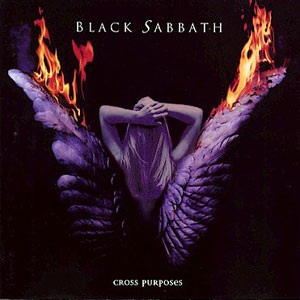
Cross Purposes is the seventeenth studio album by English rock band Black Sabbath, released in January 1994.
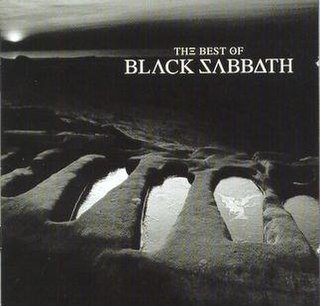
The Best of Black Sabbath is a double CD compilation album by Black Sabbath released in 2000 on the Sanctuary Records label. Its 32 songs are presented chronologically from the band's first 11 albums, spanning the years 1970 to 1983. Black Sabbath's classic six-album run, from 1970s debut Black Sabbath through 1975's Sabotage is celebrated with three to six songs from each album. Original vocalist Ozzy Osbourne's subsequent final two albums with the band, 1976's Technical Ecstasy and 1978's Never Say Die!, are represented by one and two songs, respectively. Replacement Ronnie James Dio's early 80's stint fronting the band on two albums is acknowledged with the title track of 1980's Heaven and Hell and a track from 1981's The Mob Rules. The compilation closes with a song from 1983's attempted rebirth, Born Again, former Deep Purple vocalist Ian Gillan's sole album with the band. The Best of Black Sabbath does not include any later material with vocalists Glenn Hughes, Tony Martin (1986–96) or the returning Dio.

Anthony Philip Harford, better known by his stage name Tony Martin, is an English heavy metal singer, best known for his time fronting Black Sabbath, initially from 1987 to 1991 and again from 1993 to 1997. Martin was the band's second-longest-serving vocalist after Ozzy Osbourne. He has since been involved in many other projects.

Heaven & Hell was a British-American heavy metal supergroup active from 2006 to 2010. The band was a collaboration between Black Sabbath founding members Tony Iommi and Geezer Butler and former Black Sabbath and Dio members Ronnie James Dio and Vinny Appice. The band's name was taken from the title of the first Black Sabbath album to feature Dio after the band's original vocalist Ozzy Osbourne was fired in 1979.

Black Sabbath: The Dio Years is a 2007 compilation CD of material recorded by Black Sabbath during vocalist Ronnie James Dio's tenure in the band. The CD contains remastered tracks taken from the studio albums Heaven and Hell (1980), Mob Rules (1981), and Dehumanizer (1992), as well as a live version of the song "Children of the Sea" taken from the live album Live Evil (1982). It also contains three new songs that were recorded in 2007: "The Devil Cried", "Shadow of the Wind", and "Ear in the Wall".
"Children of the Sea" is a song by heavy metal band Black Sabbath, from their ninth studio album, Heaven and Hell (1980).
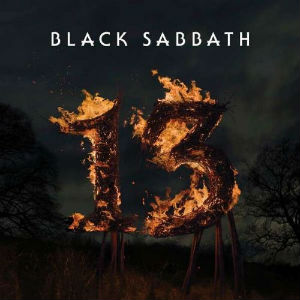
13 is the nineteenth and final studio album by English heavy metal band Black Sabbath. It was released on 10 June 2013 through Vertigo Records, acting as their first studio album in 18 years following Forbidden (1995). It was the band's first studio recording with original singer Ozzy Osbourne and bassist Geezer Butler since the live album Reunion (1998), which contained two new studio tracks. It was also the first studio album with Osbourne since Never Say Die! (1978), and with Butler since Cross Purposes (1994).

















